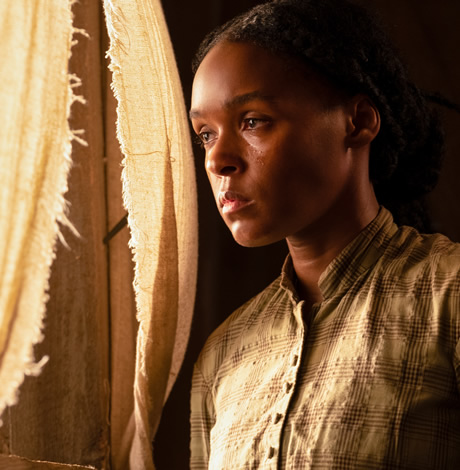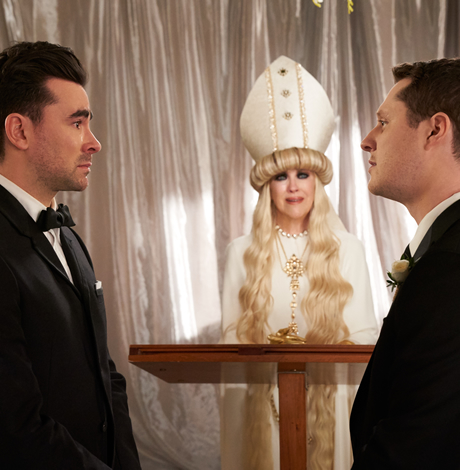Music & Concerts
New Janelle Monáe album is futuristic ear candy
Out singer explores empowerment themes with Jackson, Prince influences
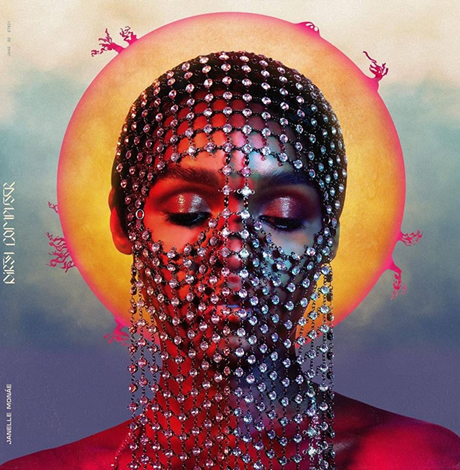
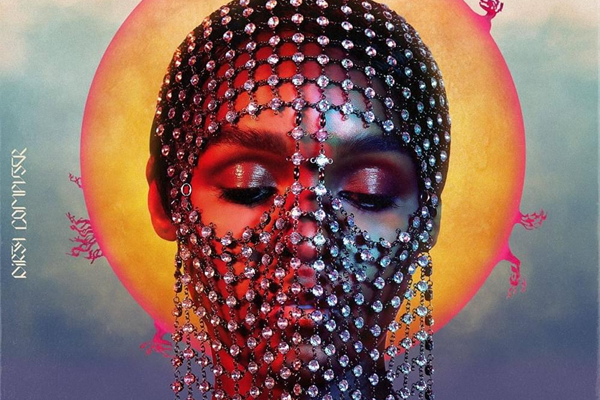
Janelle Monáe’s new album doesn’t try to hide its Prince and Michael Jackson influences. (Photo courtesy Atlantic)
Ever since her 2007 EP “Metropolis: Suite I (The Chase),” Janelle Monáe has brought a new and futuristic sound to the pop music scene. Her subsequent recordings have topped charts and she has starred in the films “Hidden Figures” (2016) and “Moonlight” (2016). Last month in Rolling Stone, Monáe came out as queer, addressing her previous relationships with both men and women, and used the term “pansexuality” to describe her sexual orientation.
Monáe’s third album “Dirty Computer” tackles her queer sexuality, in addition to other traditionally off-limits issues. Her lyrics explore blackness, the female body and the complex relationship of sex and power. And she deals with all these issues in remarkably creative ways. It’s a fresh, original album that is as political as it is hip.
Accompanying the album is a nearly 50-minute short film, or “emotion picture” as Monáe calls it. Set in a fictional dystopian future (think “Blade Runner” meets “Black Mirror”), Monáe imagines a universe where “dirty computers” — individuals who are different because of their race, gender or political beliefs — are forcibly “cleaned” by a repressive government. Various tracks from the album appear in the “emotion picture” as memories that must be erased. Only after reconnecting with her male and female love interests is Jane 57821 (Monáe’s alter ego) able to escape from the “cleansing,” demonstrating love’s power to overcome oppression.
The short film makes clear that Monáe is not afraid to take a stand in the current political climate. Musically, its inclusion represents a return to the concept album and Monáe comes back to the same fictional universe of her previous albums. With its spacey, futuristic story line, “Dirty Computer” is not just a collection of songs but is a single, coherent narrative. It’s an ambitious move for a pop singer in a musical landscape where radio-edited singles dominate. That is not to say that “Dirty Computer” is not radio-ready (several singles have been released) but rather that Monáe has set higher aims for the project as a whole.
The lead single “Make Me Feel” seems at least a titular nod to Michael Jackson’s “The Way You Make Me Feel.” Many have also noted the influence of Prince, who was Monáe’s musical mentor until his untimely death, on both this track and the album as a whole. But if anything, the song is a testament to Monáe’s voracious musical borrowings, which go far beyond any one decade, genre or style.
Of the singles released from the album, “Pynk” has perhaps garnered the most media attention for its explicit depictions of the female anatomy. The song is Monáe’s answer to the Women’s March, an Eve Ensler-esque affirmation of the female body accompanied by an upbeat, futuristic groove. The track, which features Grimes, shows off Monáe’s vocal range, contrasting the delicate sounding soprano in the verse and pre-chorus with the impressive force of the chorus.
But the album cannot be fully appreciated from just its singles. Many of the most fun and musically innovative tracks are spread throughout the album.
Among these is “Crazy, Classic, Life,” a song about the promise of equality for all. Beginning with a quote from the Declaration of Independence from Martin Luther King, Jr.’s “The American Dream” speech, Monáe affirms her identity as black queer person, singing “I’m not America’s nightmare, I’m the American dream.”
“Screwed,” featuring Zoë Kravitz, is another superb track, and it encapsulates much of the discussion surrounding the #MeToo movement: “Everything is sex/Except sex, which is power/You know power is just sex/Now ask yourself who’s screwing you.”
Through both futuristic sci-fi and borrowings from her musical heritage, Monáe has produced a cogent, sophisticated product. “Dirty Computer” is a great album and it’s Monáe’s best so far. One can’t help but look forward to seeing what else her future (real or imagined) has in store.
Music & Concerts
Washington chorale kicks off Christmas with vibrant program
‘Thine Own Sweet Light’ concerts planned
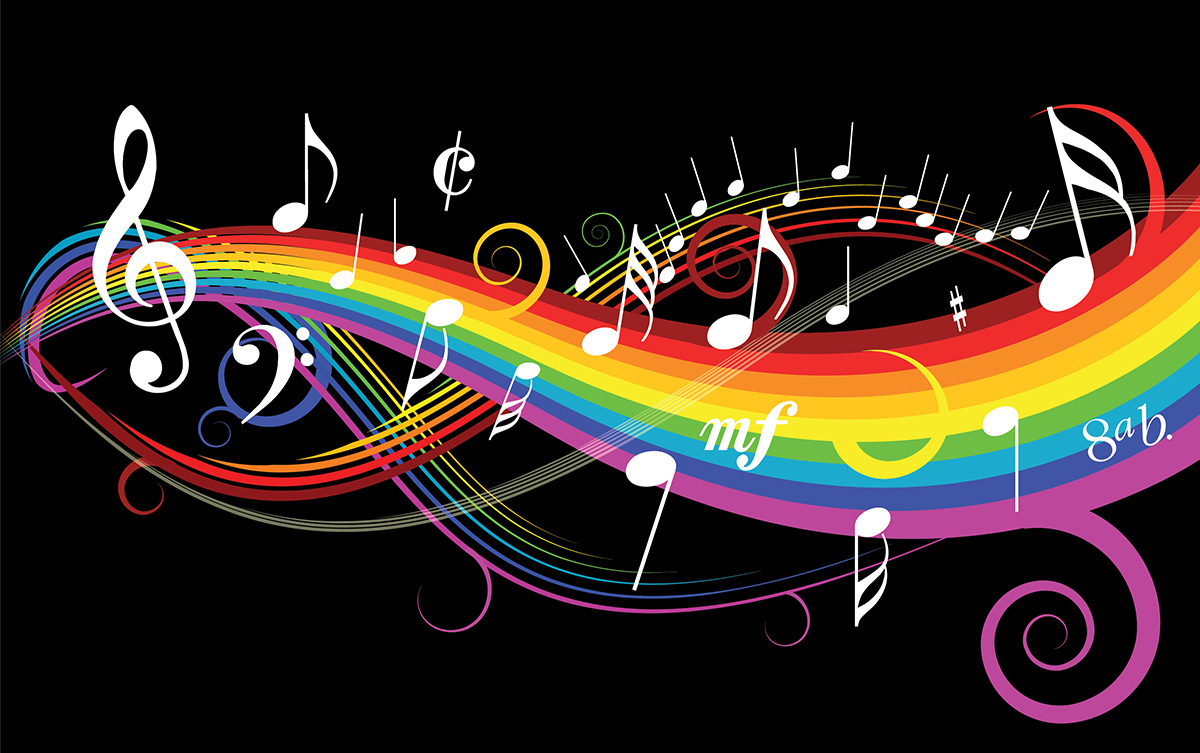
The full Washington Master Chorale will return for its annual holiday concert tradition with “Thine Own Sweet Light” on Friday, Dec. 19 and Sunday, Dec. 21 at St. Ann’s Catholic Church (D.C.) and Church of the Epiphany (D.C.).
The concert will feature the rich sounds of the 50-voice, a cappella chorus performing lush, seasonal choral music inspired by the theme of light. Highlights include Edvard Grieg’s “Ave Maris Stella,” Eric Whitacre’s “Lux Aurumque,” and Christopher Hoh’s “Holy, Holy, Holy is the Lord God of Hosts.” The program will also present a new work by Barcelona composer Josep Ollé i Sabaté, along with charming holiday folk songs and seasonal favorites.
For more details, visit the Washington Master Chorale website.
Music & Concerts
Queer mega stars (and allies) ready to take D.C. stages this fall
Watch LGBTQ icons light up stages across the DMV as they sing, dance, and drag their way through spectacular shows.

One of the best ways to welcome fall is by catching LGBTQ performers (and their allies) lighting up some of the D.C. area’s biggest stages. From country and pop to drag and rock, the season is packed with shows you won’t want to miss.
Maren Morris – The country, rock, and pop diva—known for hits like “The Bones” and for standing up against Nashville’s anti-LGBTQ voices—takes the stage at Wolf Trap (1551 Trap Rd, Vienna, Va.) on Friday, Sept. 12 at 8 p.m. Tickets start at $64.
RuPaul – The mother of modern drag and host of “RuPaul’s Drag Race” will spin a DJ set at Echostage (2135 Queens Chapel Rd NE) in Northeast D.C. on Sept. 20. Before RuPaul swaps wigs for headphones, Trade and Number 9 owner Ed Bailey will warm up the decks. For tickets and details visit echostage.com.
Conan Gray – The queer pop prince, celebrated for his Gen Z anthems like “Heather” and “Maniac,” brings his Wishbone Pajama Show to EagleBank Arena in Fairfax, VA, (4500 Patriot Cir) on Sept. 20 at 8 p.m. Tickets start at $113. For more info visit shop.conangray.com/pages/tour.
All Things Go Music Festival – With a lineup that includes Noah Kahan, Lucy Dacus, Kesha, Clairo, Doechii, and more, the beloved LGBTQ-friendly festival takes over Merriweather Post Pavilion (10475 Little Patuxent Pkwy, Columbia, Md.) Sept. 26–28. For tickets and details visit allthingsgofestival.com.
BERTHA: Grateful Drag – This unique tribute brings drag artistry and the sounds of the Grateful Dead to The Atlantis (2047 9th St NW) on Sept. 27. Tickets start at $47 at theatlantis.com.
Peach PRC – Rising Australian pop star and out lesbian, whose confessional tracks like “Perfect for You” and “Forever Drunk” have made her a queer TikTok darling, performs at The Atlantis on Sept. 29 at 6:30 p.m. The show is general admission only. Additional details are on theatlantis.com.
Addison Rae – The TikTok star-turned-pop princess, who’s crossed over into music with glossy hits like “Diet Pepsi” brings her sold out show to The Anthem (901 Wharf St., S.W.) on Sept. 30. Tickets are sold out, but resale options start around $80. For more info visit theanthemdc.com.
The Rocky Horror Picture Show 50th Anniversary – Celebrate the cult classic that’s been a queer midnight-movie staple for decades, with Barry Bostwick (a.k.a. Brad Majors) at the Warner Theatre (513 13th St., N.W.) on Oct. 2 at 8 p.m. Tickets start at $41 via Ticketmaster.
Chaka Khan, Patti LaBelle, Gladys Knight & Stephanie Mills – Four legends, one stage. Between Khan’s funk, LaBelle’s soul, Knight’s R&B, and Mills’ powerhouse vocals, this concert at Capital One Arena (601 F St NW) on Oct. 3 at 8 p.m. promises pure diva magic. Tickets start at $103. For more details visit capitalonearena.com.
Lorde – Joined by The Japanese House and Chanel Beads, the Grammy-winning New Zealand singer-songwriter behind “Royals” and “Solar Power” returns to The Anthem on Oct. 4 at 7 p.m. Lorde has long been embraced by queer fans for her dreamy pop and subversive lyrics. For more info visit theanthemdc.com.
Andy Bell (of Erasure) – The British queer rock icon, best known for synth-pop classics like “A Little Respect” and “Chains of Love,” brings his Ten Crowns Tour to the Lincoln Theatre (1215 U St., N.W.) on Friday, Oct. 17 at 8 p.m. Tickets are $90.45.
Doechii – The self-described queer “Swamp Princess”—and WorldPride 2025 headliner—continues her breakout year with the Live from the Swamp Tour at The Anthem on Oct. 21 at 8 p.m. Known for blending rap, R&B, and avant-garde performance art, Doechii is one to watch. Tickets start at $153.
Neon Trees – The out-and-proud Utah rockers behind “Everybody Talks” and “Animal” perform at the Lincoln Theatre on Friday, Oct. 24 at 8 p.m. Lead singer Tyler Glenn, who came out publicly in 2014, has become a strong queer voice in alternative rock. For tickets and info visit impconcerts.com.
Sasha Colby – The “RuPaul’s Drag Race” Season 15 winner strips down on the Stripped II Tour at the Warner Theatre on Nov. 2 at 8 p.m. Tickets available now on Ticketmaster.
Lola Young – The bisexual indie-pop sensation, whose raw songwriting has earned her millions of TikTok fans and multiple chart soaring hits visits The Anthem on Nov. 9 at 8 p.m. Tickets are still available.
Opera Lafayette
Featuring Mary Elizabeth Williams as Dido
+ Elijah McCormack, Chelsea Helm
Oct. 16, 7:30 p.m.
Sixth & I
PostClassical Ensemble
The Pale Blue Do: A Musical Voyage Inspired By Nature
Featuring National Geographic’s Enric Sala, Guest Curator
Wednesday, November 19, 7:30 p.m.
Terrace Theater
Washington Concert Opera
Starring Kate Lindsey, Theo Hoffman, John Moore, and Fran Daniel Laucerica
Nov. 23, 6 p.m.
Lisner Auditorium
Washington Master Chorale
An intimate a capella concert taking place in an architectural jewel, featuring cherished choral gems from Anglican and Catholic tradition and early American hymns. The concert will also present the world premiere of Christopher Hoh’s Holy, Holy, Holy is the Lord God of Hosts, and hymn singing featuring Robert Church, organist and choirmaster at St David’s.
Oct. 18, 7:30 p.m.
October 19, 5 p.m.
St. David’s Episcopal Church
Music & Concerts
Cyndi Lauper ready to have fun in Virginia
Superstar to bring final leg of farewell tour to Jiffy Lube Live
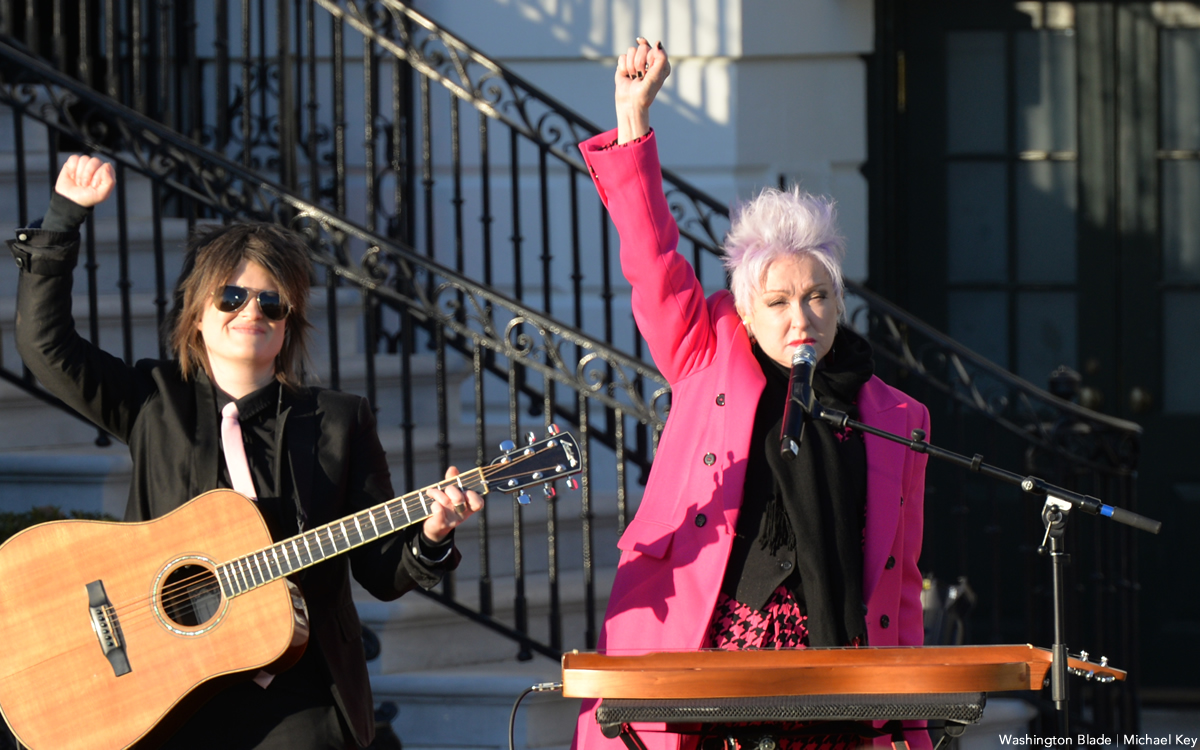
Superstar Cyndi Lauper will bring the final leg of her farewell tour “Girls Just Wanna Have Fun” to Bristow, Va., on Thursday, July 24 at Jiffy Lube Live.
Lauper’s international Farewell Tour – her first major headlining run in a decade – kicked off in North America last October, and included her first time ever headlining (and selling out) Madison Square Garden. Lauper’s performances have earned raves from the New York Times, Rolling Stone, Billboard, and many more, and surprise guests have included Chaka Khan, Sam Smith, and Hayley Williams. The tour just visited the U.K. and Europe, and will head to Australia and Japan in April.
Tickets are available on Live Nation’s website.


